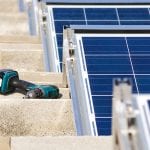Around The Web
EU Midday Market Briefing
EU spending tens of millions of euros a year to promote meat eating
Campaigns to promote consumption of pork and veal labelled ‘indefensible’ in light of health and climate concerns
The EU has been accused of an “indefensible” approach to human health and the climate crisis in spending tens of millions of euros each year on campaigns to reverse the decline in meat eating and trying to rebut so-called “fake news” on the mistreatment of animals bred for food.
Campaigns range from those designed to counter official warnings about the risk of cancer from eating red meat, to improving the public image of veal products said to be crucial in “deriving value from young male calves” superfluous to the dairy industry.
Continue reading...Everest: Top Sherpas slam Nepal's plan to clean rubbish from mountain
CN Markets: Pilot market data for week ending Feb. 14, 2020
NZ Market: NZUs extend losses as profit-taking, panic-selling continue
Antarctic island hits record temperature of 20.75C
School strikes give me hope, says head of Friends of the Earth
Outgoing charity chief Craig Bennett says next generation ‘could not be more exciting’
The school strikes movement will ensure an exciting and dynamic future for environmental activism for decades to come, the outgoing head of Friends of the Earth has said, as students across the globe leave classrooms on Friday to demand political action on the climate crisis.
Speaking on the first anniversary of the movement in the UK, Craig Bennett said it was grassroots activism, not centralised politics, that was leading to change.
Continue reading...Adviser (Public Policy), The Australian Industry Group – Melbourne
Wind and batteries saved the day when storm cut South Australia adrift
 South Australia, and its growing wind, solar and battery resources, pass key test after storms tear down power lines and leave renewable-dominated grid operating as an island.
South Australia, and its growing wind, solar and battery resources, pass key test after storms tear down power lines and leave renewable-dominated grid operating as an island.
The post Wind and batteries saved the day when storm cut South Australia adrift appeared first on RenewEconomy.
Rajendra Pachauri, former IPCC head accused of sexual harassment, dies aged 79
Environmentalist was in charge when UN climate change panel shared 2007 Nobel peace prize but career was marred by harassment claims
The Indian environmentalist Rajendra Kumar Pachauri, under whose leadership a UN climate change panel shared the 2007 Nobel peace prize, has died after recent heart surgery. He was 79.
Pachauri’s death was announced late on Thursday by the Energy and Resources Institute (TERI), a research group he headed until 2016 in New Delhi.
Continue reading...SEC vows “ruthless” political campaign to overcome big solar and wind gridlock
 Smart Energy Council vows "ruthless and pointed” campaign, as maelstrom of grid constraints, connection delays and policy vacuum threatens to send big solar and wind investment over a cliff.
Smart Energy Council vows "ruthless and pointed” campaign, as maelstrom of grid constraints, connection delays and policy vacuum threatens to send big solar and wind investment over a cliff.
The post SEC vows “ruthless” political campaign to overcome big solar and wind gridlock appeared first on RenewEconomy.
Coal generator virtually given away by NSW to get $11m handout for repairs
 Morrison government set to spend $11 million on Vales Point upgrade, but is it unfairly raising community expectations of new coal investments?
Morrison government set to spend $11 million on Vales Point upgrade, but is it unfairly raising community expectations of new coal investments?
The post Coal generator virtually given away by NSW to get $11m handout for repairs appeared first on RenewEconomy.
Is it time to re-think the love story?
Winners and losers of large-scale energy storage on the NEM
 What is the impact of significant utility-scale storage volumes on the National Electricity Market? Who are the winners and losers, and where are the key risks?
What is the impact of significant utility-scale storage volumes on the National Electricity Market? Who are the winners and losers, and where are the key risks?
The post Winners and losers of large-scale energy storage on the NEM appeared first on RenewEconomy.
Connection problems push more contractors out of solar market
 Growing complexity surrounding connections to main grid causing more contractors to abandon large scale solar sector, with some warning of potential contractor shortages.
Growing complexity surrounding connections to main grid causing more contractors to abandon large scale solar sector, with some warning of potential contractor shortages.
The post Connection problems push more contractors out of solar market appeared first on RenewEconomy.
Government extends price controls to households with rooftop solar
 The federal government expands the 'default market offer' to all households with rooftop solar.
The federal government expands the 'default market offer' to all households with rooftop solar.
The post Government extends price controls to households with rooftop solar appeared first on RenewEconomy.



